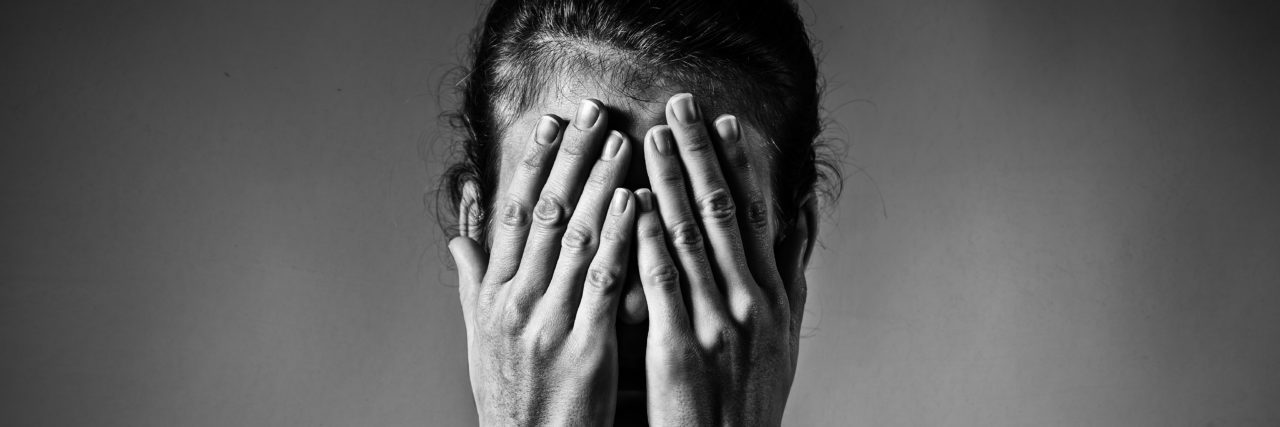When someone replies with the phrase, “I’m fine,” when asked how they are, it’s undoubtedly one of the biggest lies ever spoken – probably somewhere up there with, “I have read the terms and conditions,” and, “There are sexy singles in your area”.
So, let’s be honest. How many times have you said, “I’m fine,” when you really weren’t? A few? Quite often? Too many times to count? Well, you’re not alone.
So why do we feel this need to say all is well rather than just admitting we have a problem? What impact does this non-committal exchange have on our mental well-being and what can we do about it? For this, I propose three theories (of many) for why we overuse this particular phrase:
Theory 1: We’re just being polite.
The simple response initiated by asking, “How are you?” is ritualistic; a social norm engrained that violating it is like prolonged eye-contact while eating a banana — you just don’t do it. It’s an automatic script of sorts; we’ve rehearsed our parts so well, we’re basically Meryl Streep.
Checking in one one another with such superficial questioning and answering stops us from speaking openly and honestly about our mental health, as if we believe the other person isn’t actually intent on finding out (or perhaps prepared for) the real answer.
Now, saying, “I’m fine,” can just be… convenient. We liberally douse this phrase on each other in passing or in the supermarkets. I guess we must choose the moments when we allow our conversations to become more substantive. By returning meaning behind our words, we can seize vital opportunities to both seek and offer support.
Theory 2: We want to seem “fine.”
My wonderful Grandma says, “You can either sink or swim… and I choose to swim.” Whilst there’s something impressive about a person who solves their own problems, I think we’re fooled by the misconception that if self-reliance is a virtue, requiring help is a weakness. So, we present a “brave face.” We hide our vulnerabilities. We act like dogs who get stuck in things but pretend everything is OK. We precipitate a culture where we don’t discuss our own mental health for fear of judgment.
“Am I the only one who feels this way?” Self-doubt like this clouds the reality that we often have common struggles. When I first acknowledged I was struggling with my mental health with my university personal supervisor, it kind of felt like that moment when someone asks the question in class you thought was too silly to ask aloud. Suddenly you realize you’re not alone and the question wasn’t silly at all.
Those asking for support are incredibly brave. But sometimes you can’t quite initiate this first step alone. It wasn’t until I fell off the uni treadmill following traumatic events that a friend contacted my personal supervisor on my behalf. Sometimes it’s not “sink or swim;” sometimes you need a lifeboat, and she was just that.
Theory 3: We don’t want to burden others.
The phrase “I’m fine” can also act as the conversational equivalent of Crocs: swiftly able to shut down any chance of further discussion. Quite often, this defensive response results from a fear of worrying, burdening or annoying the listener.
Personally, I insist “I’m fine” in order to force myself to be the person I, and others, expect me to be (I’d like to think humorous and enthusiastic…). However, simulating these qualities and engaging in societies whilst depressed is grueling — sometimes I’d rather just hide away. Exhaustion and isolation is a high price to pay for thinking that I’m “pleasing” or “protecting” others. It took me a long time to realize I don’t have to worry about pleasing or protecting others if I can have an honest conversation. People are more understanding than mental illness lets you believe.
There are SO many services and resources available that are incredibly willing to offer professional support and advice (e.g. counseling, student support, supervisors, campus GPs). But what friends DO have is time, care and compassion. You have the ability to reassure each other to be open and heard. You also have the capacity to learn what the other may want but won’t ask for, and what they need but didn’t know. Open ear? Cup o’ tea? It’s the little things too.
Overall, we must push for cultural change in terms of discussing our mental health. Speaking openly and honestly can begin by asking simply and genuinely how someone is. As humans, we experience a spectrum of emotions – chances are, you’re probably not just “fine.” It’s about time it’s okay to say we’re not OK.
Getty Images via SvetaZi

